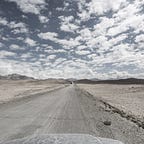After Parking is Solved
Imagine never having to look for a parking space ever again. Imagine that from here on out, this problem is solved.
It soon will be.
And soon we’ll be dealing with the knock-on effects.
The car itself will reserve and pay for a spot on the street or in a garage automatically, just as we pay seamlessly for electronic books and music via our Amazon and iTunes accounts today, without typing in our credit card information over and over again. We’ll be comfortable delegating some of the administrative minutiae of travel to our cars to sort out; in essence, the car, and the cloud will act as personal assistants and ‘travel agents’. Our travel agent will handle the admin; we [1] will get on with our lives.
Today in situations where someone is inconvenienced a ‘fine’ is levied to punish socially errant behaviour — the rules can be rewritten so that the inconveniencer can directly compensate the inconveniencee, peer to peer, no middle man taking a cut.
When your increasingly predictable life is lain bare, the travel agent will know where you’re going, the maximum we want to pay to park or want to walk from our parking spot to our destination. If plans or traffic patterns change while we’re en route, it will automatically off-load the reservation it has, and negotiate an alternative. If our meeting or meal runs over and we can’t make it back to retrieve our car in time, the car itself will communicate with the next person’s travel agent — that is booked for that spot.
Today in situations where someone is inconvenienced a ‘fine’ is levied to punish socially errant behaviour — the rules can be rewritten so that the inconveniencer can directly compensate the inconveniencee, peer to peer, no middle man taking a cut.
Urban infrastructures are increasingly being equipped with sensors and other means of collecting information and channeling our everyday actions, from energy use to parking patterns, into software and networks that analyze data and act upon it. Cities and communities are becoming a lot more measurable [2], a few people are becoming a little smarter. What this means is that more and more people and things, including parking spaces are becoming connected, allowing for better prediction models of traffic and energy usage thanks to real-time data flows, leading to better awareness of current resource statuses and more practical matters such as more dependable payment mechanisms. We are becoming better at managing what we know how to measure. At least for those that—literally and philosophically subscribe—to the system designers boundaries of imagined use.
Whilst the pain of finding a parking space for you [1] will dissipate into the cloud, the cloud will hide other, less apparent costs. The concepts of the “smart” car, “smart” parking and payment systems, and “smart” cities are interesting enough. But all are really just a smoke screen for a much deeper set of political and even philosophical issues that will impact urban dwellers in the near future, especially as more than half’s the world’s population is now living in cities. That set of issues centres around the delicate dance between public and private ownership of space, both in the cloud and on the ground.
The private sector is heavily involved in developing many of these and other massive urban infrastructure projects that are likely to or already use much of our personal data to create more efficient public services.
That’s because while this model can provide convenience, it will also create new problems for the communities that will use these infrastructures as well as the companies and governments that built them. Let’s go back to the parking example. Soon, there will be third parties figuring out a way to unofficially buy and sell parking spaces in dynamic parking markets, via peer-to-peer systems of trading spots on the street. Will this become a punishable act, a violation of the rule of paying city authorities? Or will private-sector companies find ways to work with entrepreneurs who might see business opportunities in a once-regulated, government-operated systems, raising prices for parking even higher than the peak costs?
Another example: autonomous vehicles that cruise neighbourhoods, at an optimal distance from their owners waiting for the pick-up call, essentially switching the inconvenience of an individual finding a parking spot, to nearby communities dealing with increased traffic pollution.
Thoughts for today.
Who has the rights to exploit what happens on your sidewalk? Your neighbourhood? Your roads? What are the rules? Who sets them? Who profits?
What is your role in this? How will you get involved?
[1] “We”, as in you dear reader, algorithm savvy, able to afford a new, increasingly autonomous vehicle. If there is a technology that highlights the gulf between those that have, and those that don’t, it is autonomously mobile vehicles.
[2] Over time, the people running cities may become smarter, according to their own personal and professional agendas. But this is a million miles away from citizens making smarter decisions.
If you like this, you’ll appreciate Kabul: A Walking Tour, Bribing the Driver, and the strangely popular 12 Concepts in Autonomous Mobility. I’m a photographer, and the founder of Studio D Radiodurans.
Click [heart] to share the love.
